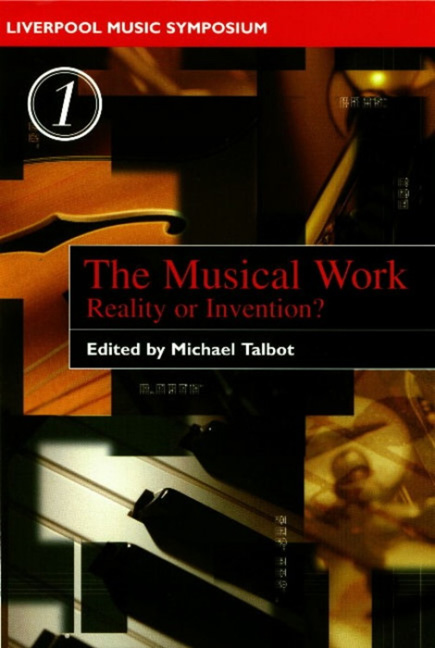Book contents
- Frontmatter
- Contents
- Notes on Contributors
- Introduction
- 1 Some Thoughts on the Work in Popular Music
- 2 Intertextuality and Hypertextuality in Recorded Popular Music
- 3 Work-in(g)-Practice: Configurations of the Popular Music Intertext
- 4 Work and Recordings: The Impact of Commercialisation and Digitalisation
- 5 The Practice of Early-Nineteenth-Century Pianism
- 6 Looking Back at Ourselves: The Problem with the Musical Work-Concept
- 7 ‘The Work’: An Evaluative Charge
- 8 The Work-Concept and Composer-Centredness
- 9 The Musical Artwork and its Materials in the Music and Aesthetics of Busoni
- 10 Re-composing Schubert
- 11 ‘On the Problems of Dating’ or ‘Looking Backward and Forward with Strohm’
- Index of Musical Compositions and Collections
- Index of Personal Names
8 - The Work-Concept and Composer-Centredness
- Frontmatter
- Contents
- Notes on Contributors
- Introduction
- 1 Some Thoughts on the Work in Popular Music
- 2 Intertextuality and Hypertextuality in Recorded Popular Music
- 3 Work-in(g)-Practice: Configurations of the Popular Music Intertext
- 4 Work and Recordings: The Impact of Commercialisation and Digitalisation
- 5 The Practice of Early-Nineteenth-Century Pianism
- 6 Looking Back at Ourselves: The Problem with the Musical Work-Concept
- 7 ‘The Work’: An Evaluative Charge
- 8 The Work-Concept and Composer-Centredness
- 9 The Musical Artwork and its Materials in the Music and Aesthetics of Busoni
- 10 Re-composing Schubert
- 11 ‘On the Problems of Dating’ or ‘Looking Backward and Forward with Strohm’
- Index of Musical Compositions and Collections
- Index of Personal Names
Summary
In her important and provocative book The Imaginary Museum of Musical Works Lydia Goehr presents what she calls her ‘central claim’ in the following terms:
The claim is that given certain changes in the late eighteenth century, persons who thought, spoke about, or produced music were able for the first time to comprehend and treat the activity of producing music as one primarily involving the composition and performance of works. The work-concept at this point found its regulative rôle. This claim is not committed to the supposition that the work-concept has, since this time, retained its original foundation in the sense that it has come to take on no further meaning. Nor does it imply that composers producing music in centuries prior to the nineteenth were not producing works. Thus, despite the story of its emergence into a regulative concept in the late-eighteenth century, the use of the work-concept is not confined to products only of this and later periods.
Whatever one's initial reaction to this bold statement, the identification of the late eighteenth century as a watershed in the evolution of music coincides with certain other great historical changes that are commonly recognised as having affected music around the same time. All of them have to do with increased autonomy in some shape or form. In the sphere of social conditions, we see the emergence on a mass scale of the fully professional but essentially freelance composer and/or virtuoso performer who, in a way recognisably modern, invents a personal manner of livelihood by ‘commuting’ between different sources of income (selling compositions to publishers, fulfilling private commissions, giving music lessons, appearing at public concerts as director or soloist, etc.). In that of consumption, we observe the rise of music serving as pure recreation, whether in a domestic setting or in the concert hall, and the associated move into a dominant position of ‘non-functional’ – generally instrumental – music, henceforth freed from dependence on religious or secular ceremony or social activities such as dancing and banqueting. In that of repertoire, we note the formation, for the first time, of a universal musical ‘canon’: a cumulatively expanding body of performed compositions comprising what are reckoned the best from both past and present. All these developments were, of course, mutually supportive and perhaps even mutually dependent.
- Type
- Chapter
- Information
- The Musical WorkReality or Invention?, pp. 168 - 186Publisher: Liverpool University PressPrint publication year: 2000



